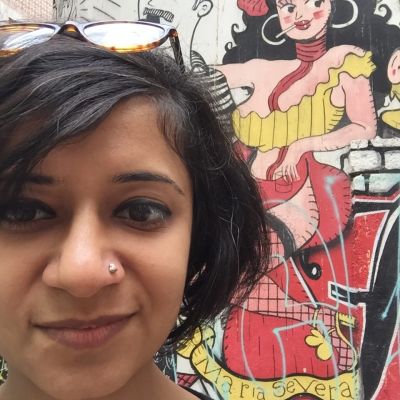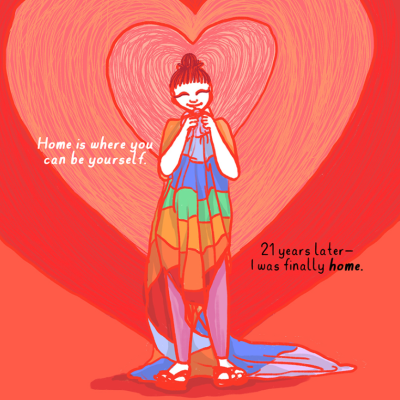Safety
LGBTIQA+ young people should feel safe and empowered in everyday physical spaces, and many do – often with support from a wider community of peers who share similar experiences. But until the world becomes more friendly for queer and gender diverse people, we expect they’ll continue to find safety, community, identity, and friendship on Tumblr.
By Orinam Apr 13 2020 Post comment To the reader: we recognize that the English-language content below may not be…
Being a woman who loves other women, I realised that women look at me with the same tender gaze I look at them with. And that, more than anything, has made me feel at peace with my body. I hope to one day love it
I want it, I got it. Right? Except, what I often get is some approximation of erotic pleasure, which has more to do with my own conditioning about what good sex looks like, and little to do with my body’s erotic mechanisms. This very peculiar condition is often lumped under ‘sexual frustration’, when it should really be addressed under safety.
This movie had instantly called out to me because the book had made a huge impression many years ago when I was going through a Stephen King phase and consuming as many of his novels as I could. It is a story of resilience where a woman had to rescue herself from a dangerous situation of metaphorical and emotional bondage as well as the physical and sexual kind.
Shruti Arora is a feminist trainer and researcher in the field of Gender and Sexuality. In this interview, she shares her insights on collective practices of building safe and sexuality-affirming spaces for young people, in friendships and community, digital and healthcare settings.
For a lot of queer people, ‘home’ can hold complicated meanings. The space of one’s home can be fraught with bigotry and alienation, and be far from safe or comforting. And so, there is a quest to find alternate ‘homes’, to find a space where we feel truly accepted, safe and protected.
Though most of us shy away from opening ourselves to be vulnerable, there is great power in expressing our vulnerabilities to the people closest to us, whether a friend or an intimate partner.
आज मुझे लड़कियों के अपने हॉस्टल से निकले हुए तीन वर्ष हो चुके हैं, और मुझे लगता है कि हॉस्टल जीवन में मिली सभी सीखें आज भी मेरे यौनिक जीवन को सही दिशा देने में कारगर साबित हो रही हैं।
I am a 25-year-old cis woman and I recently had sex with another woman for the first time. It was new, it felt nice, but it just didn’t feel safe.
We all talk of ‘safe’ as some place where we are not in danger. Well, the truth is there is danger everywhere. So, maybe before we even delve into the subject of safety and sexuality, it is imperative that we take a moment to pause and see what safety and sexuality could even mean.
To ensure that important discussions about issues of sexuality can take place at home, in schools and between generations, efforts needs to be made to change the norms – especially those related to perceptions of safety. Individuals, institutions, organisations and policies need to work together to include safe spaces for reflections and opportunities for these discussions to become common practice.
Shilpa believes loitering, just being, just hanging out in public places, is about ‘claiming the city with your body’. One of the co-authors of the book, ‘Why Loiter: Women and Risk on Mumbai’s Streets’ published in 2011, Shilpa has authored several essays and journals on issues of feminist parenting, gender and the politics of space, the right to take risks and related thoughts and concepts.
However elusive the combination of safety and adventure, it’s a framework I find terribly useful. It helps me understand much of life, including spirituality and sexuality, and what the two might have in common.
Many among us are called names, are greeted with aggressive taunts and jeers on the very streets we boldly occupy at least once every year,so we go on living docilely until the next Pride, when performative reclamation of spaces becomes possible.















